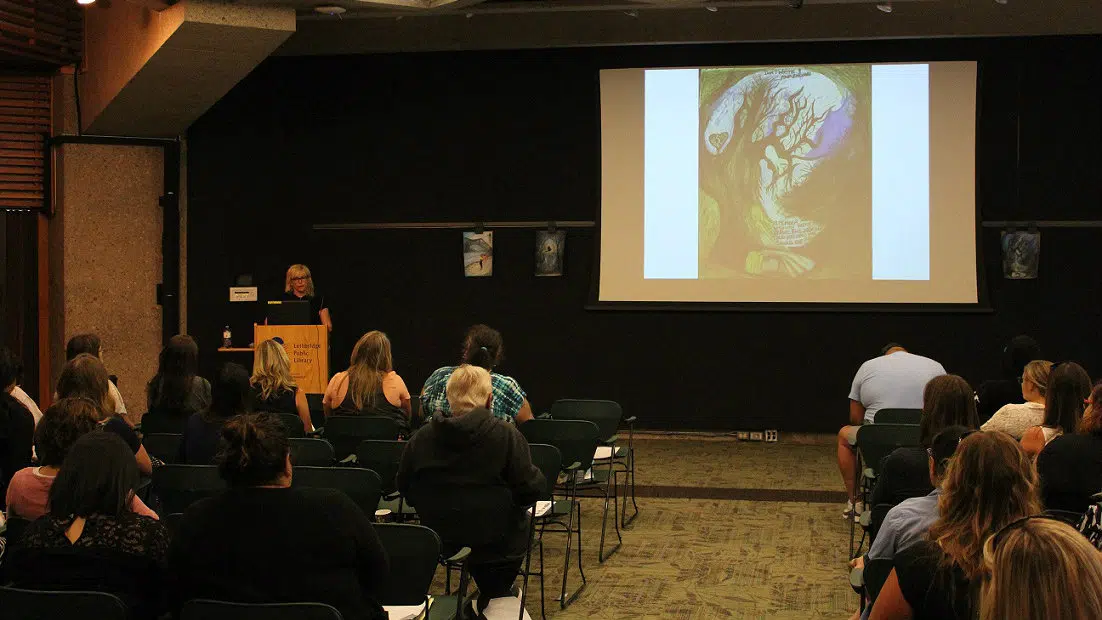
Local professionals and people impacted by suicide honour World Suicide Prevention Day
LETHBRIDGE – World Suicide Prevention Day took place Sunday, but a crowd gathered at the Lethbridge Public Library on Monday to talk about the issue of suicide in the community.
The Community Interagency Suicide Prevention Council (CISP) has been hostin its Honouring World Suicide Prevention Day event for eight years now, with the first taking place back in 2010.
Each year the CISP brings in a variety of speakers, both professional presenters and people with personal stories to tell, on the topic of suicide prevention.
Brad Moser, a CISP member and registered psychologist and family counsellor, says throughout the eight years the event has had a pretty powerful impact on those in attendance.


